CSDE Science Core – Upcoming Workshops: Biomarkers, Statistics & R, Online Surveys & REDCap, Accessing Federal Data
|
In the upcoming quarter, CSDE will be hosting four workshops and one ‘lunch and learn’ event to facilitate researchers’ adoption of new methods and data to accelerate research programs. These workshops include an overview of portable biomarker data collection in the field, accessing federal statistical data, developing online surveys using REDCap, conducting statistical analysis with R, and an introduction to data options for research on older adults.
Each quarter, CSDE offers 3-5 workshops on data sources, statistical and biomarker methodology, introductions to analysis programs, and more, all given by CSDE staff and faculty affiliates. These workshops can include hands-on training in novel methods and programming, lectures on innovative data sources, and discussions of important issues in research and data collection. Over the course of the academic year, CSDE will offer a diverse and exciting set of workshops, some of which will be offered in person and others remotely via Zoom. Students, faculty, and staff are all welcome to register for our workshops and we welcome registrants from outside the University of Washington for our remote workshops as well.
You can find our workshop website and register for our Winter 2024 workshops in the links below. We will be filling in our schedule for Spring workshops soon, so stay tuned!
Please reach out to CSDE’s Training Director, Jessica Godwin (jlg0003@uw.edu), if you have additional workshops you would like to see offered in the future and we will do our best to accommodate those requests.
Winter Workshops
(read more)
|
 |
*New* CSDE Computational Demography Working Group (CDWG) Hosts Anissa Tanweer on Integrating Ethics into Data-Intensive Research (01/17/2024)
|
On January 17th from 3-4pm, Anissa Tanweer, a Senior Social Scientist at the eScience Institute and CSDE Affiliate, will present at the CDWG. Dr. Tanweer conducts ethnographic research on the practice and culture of computationally-mediated science and directs the UW Data Science for Social Good summer internship. At the CDWG, she will discuss her work on integrating ethics into practice of data-intensive research and provide an overview of the Data Science for Social Good program. CDWG Will be Hybrid in Winter Quarter 2024. Attend in-person in 223 Raitt Hall (The Demography lab) or on Zoom (register here).
(read more)
|
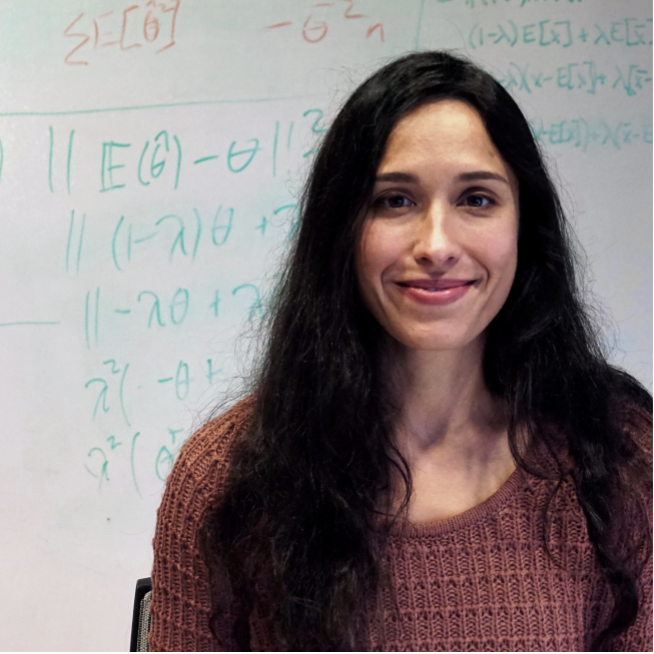 |
*New* Register now for PAA 2024! (Apply for CSDE funding by 1/26/24)
|
Registration is now open for PAA 2024 in Columbus, OH!
Important Dates and Deadlines:
- February 11, 2024: Deadline for all presenters to register
- February 16, 2024: Last day the early-bird rate is available
- February 17 – March 29, 2024: Regular registration rates will be in effect.
CSDE students who are presenting at PAA 2024 can apply here for registration and/or travel support.
(read more)
|
 |
*New* Applications Open for the Winter 2024 CSDE Lightning Talks and Poster Session! (Due 1/26/24)
|
Calling all graduate students to submit abstracts for the Winter 2024 CSDE Lightning Talks and Poster Session! The Lightning Talks and Poster Session will be held Friday, March 8th from 12:30-1:30 and will include two sections, a lighting talk and poster session. This is an excellent, low-stakes opportunity to practice your presentation skills and grow your network. To apply, submit a brief abstract and information about yourself and your collaborators here by COB Friday, January 26th. Learn more details about this opportunity in the full story!
(read more)
|
 |
*New* CSDE Computational Demography Working Group (CDWG) Hosts Yiwei Xu on Digital and computational approaches to public health communication research (01/31/2024)
|
On January 31st from 3:00 – 4:00 pm, CDWG will host Dr. Yiwei Xu. Yiwei Xu is a Postdoctoral Scholar at the UW Center for an Informed Public and Information School, she’s also a Data Science Postdoctoral Fellow at the UW eScience Institute. She will share her work on using digital and computational approaches to conduct public health communication research. She will share two studies; Study 1 was published in Health Communication titled “Collective Information Seeking During a Health Crisis: Predictors of Google Trends During COVID-19”; Study 2 is work in progress titled “Community Characteristics Predict Local News Agenda Building about Racial Health Disparities”. CDWG Will be Hybrid in Winter Quarter 2024. Attend in-person in 223 Raitt Hall (The Demography Lab) or on Zoom (register here).
(read more)
|
 |
CSDE Population Research Planning Grants (PRPGs) (Rolling deadline)
|
Population Research Planning Grants (PRPGs) are designed to provide in-kind support and/or funds of up to $25k* to support a wide array of activity types throughout the development of a research project. As part of our mission to complement rather than duplicate other campus opportunities such as the Population Health Initiative seed grants, we will consider funding a variety of activities. See a list of example activities in the full story!
(read more)
|
 |
CSDE Matching Support to Supplement On-campus Funding (Rolling deadline)
|
CSDE Matching Support includes in-kind or monetary support to accompany a submission to other on-campus funding mechanism, such as PHI, EarthLab, or Urban@UW. All projects must have a CSDE affiliate who is UW faculty and is listed as a PI or co-PI, with any number of other collaborators. Note that we require (PRPGs) or strongly suggest (matching funds) contacting either Development Core Director (Steven Goodreau) or CSDE Director (Sara Curran) to discuss possibilities for your specific proposal before submission.
(read more)
|
 |
*New* Issue of Journal of Marriage and Family
Read the latest issue here!
(read more)
CSSS Seminar with Vince Wang: Do Inclusionary Zoning Policies Affect Local Housing Markets? An Empirical Study in the United States (1/17/24)
|
Join CSSS for a seminar by CSDE Affiliate Vince Wang on Wednesday, Jan. 17th at 12:30. The seminar will be hybrid on Zoom (register here) and in 409 Savery Hall. Vince Wang is an Assistant Professor in the Runstad Department of Real Estate. Read more about the talk here.
(read more)
|
 |
*New* Seminar by the West Coast Poverty Center: The effect of Families First Coronavirus Response Act (FFCRA) on mothers’ employment outcomes during the Covid-19 pandemic (1/18/24)
|
UW’s West Coast Poverty Center invites you to attend a seminar by Ji Young Kang (Assistant Professor, Chungnam National University) for a talk, titled “The effect of Families First Coronavirus Response Act (FFCRA) on mothers’ employment outcomes during the Covid-19 pandemic”. The seminar will take place on Thursday, Jan 18th from 9:30-10:30 AM in Room 306A/B of the Social Work Building.
(read more)
|
 |
*New* Allen School Distinguished Lecture Series: What we see and what we value: AI with a human perspective (1/18/24)
|
Join UW’s Allen School for a seminar by Fei-Fei Li (Stanford University), titled “What we see and what we value: AI with a human perspective”. The seminar will take place on Thursday, Jan. 18th at 3:30 PM in the Amazon Auditorium of the Gates Center. The talk will also be streamed live on the Allen School’s YouTube channel [link will be available 1 hour before talk]. Read more about the talk here.
(read more)
|
 |
*New* Seminar by Center for Environmental Politics: The consequences of Environmental Protest in Global Perspective (1/19/24)
|
The Center for Environmental Politics presents Evan Schofer and Ann Hironaka (professors of Sociology, University of California-Irvine), “The consequences of Environmental Protest in Global Perspective”. The seminar will take place on January 19th in Gowen Hall, 1A from 12:00-1:30pm. No RSVP is required. Learn more about the talk here.
(read more)
|
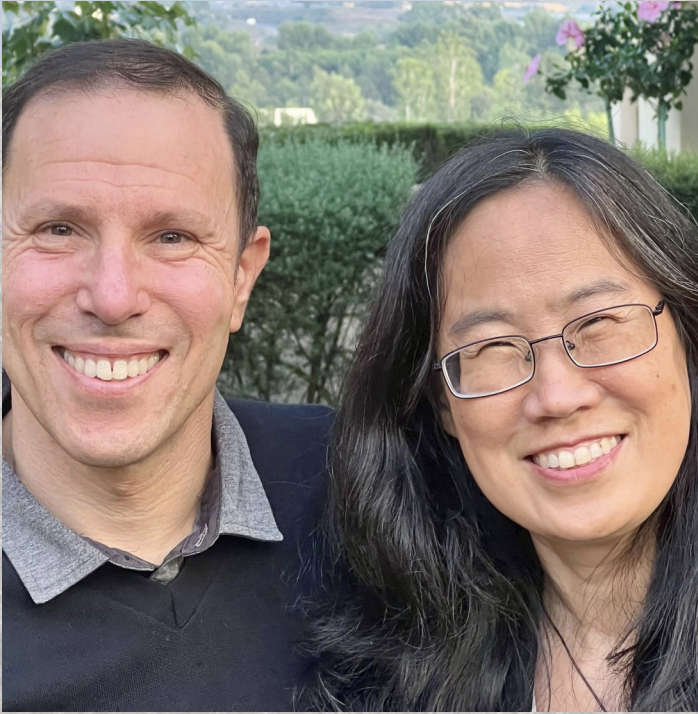 |
*New* CSSS Seminar with Trey Causey on Data Science, Machine Learning, and Responsible AI: CSSS and Careers in Tech (1/24/24)
|
CSSS will be hosting Trey Causey for a seminar on Wednesday, Jan. 24th at 12:30 in 409 Savery Hall and on Zoom (register here). Trey Causey completed his concentration in social statistics at CSSS while a PhD student in Sociology at UW. He currently is the Head of Responsible AI and Senior Director of Data Science at Indeed, the world's #1 job site in the world and has worked at the intersection of statistics, data science, and machine learning in sports, at startups, and at large social media platforms. Learn more about the talk here.
(read more)
|
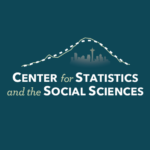 |
*New* Seminar by South Asia Center – Boats in a Storm: Law, Migration, and Decolonization in South and Southeast Asia (1/25/24)
|
Join UW South Asia Center and UW Center for Southeast Asia and Its Diasporas for a seminar by Kalyani Ramnath (University of Georgia) on Thursday, Jan 25th from 3:30-5:00 PM in 317 Thompson Hall. For more than a century before World War II, traders, merchants, financiers, and laborers steadily moved between places on the Indian Ocean, trading goods, supplying credit, and seeking work. This all changed with the war and as India, Burma, Ceylon, and Malaya wrested independence from the British empire. Set against the tumult of the postwar period, Boats in a Storm centers on the legal struggles of migrants to retain their traditional rhythms and patterns of life, illustrating how they experienced citizenship and decolonization.
(read more)
|
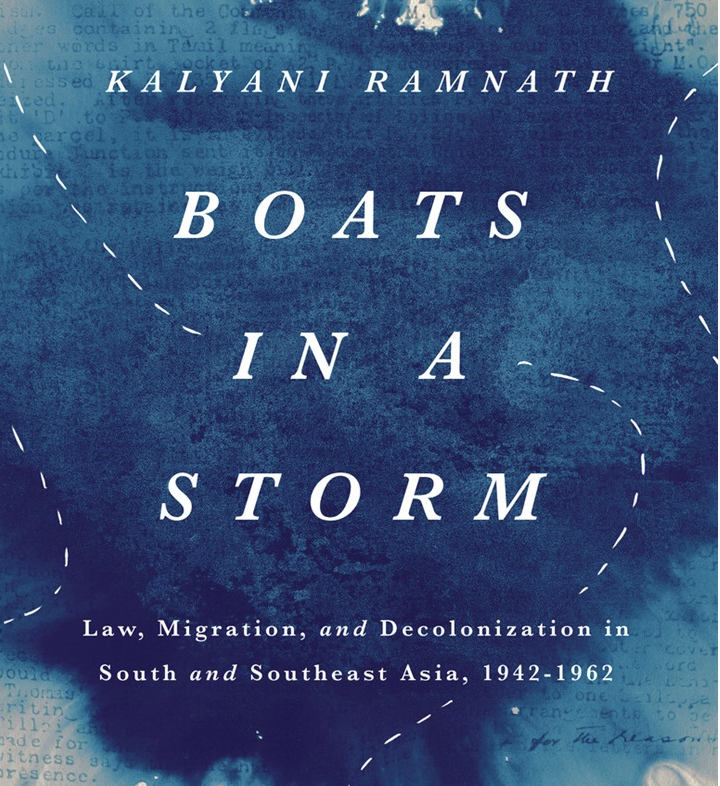 |
2025 NOAA NMFS-Sea Grant Joint Fellowship in Fisheries Science (Due 1/25/24)
Apply for the Future Rivers Graduate Training Program (Due 1/26/24)
|
Applications are now open for the University of Washington Future Rivers graduate training program beginning Autumn quarter 2024! Any prospective (incoming fall quarter 2024) or current PhD or Masters students in any discipline at the University of Washington are encouraged to apply. Future Rivers is a graduate training program building skills in data science, science communication, and social justice to bridge work across all fields to better solve today’s freshwater sustainability challenges.
(read more)
|
 |
Washington Center for Equitable Growth Announces Research Grants for Early Career Scholars (Due 1/29/24)
|
The Washington Center for Equitable Growth (WCEG) announced an RFP for research grants for early career scholars. Through this new competitive grant program, Equitable Growth seeks to invest in early career scholars whose research agendas are policy relevant, related to how inequality affects economic growth, and who are interested in engaging with nonacademic audiences. Early career scholars are defined as graduate students currently in the dissertation stage of their graduate career and scholars at a U.S.
(read more)
|
 |
*New* Webinar: Introduction to IPUMS MICS (1/30/24)
|
IPUMS MICS, the harmonized version of the Multiple Indicator Cluster Surveys by UNICEF, is the newest addition to the IPUMS Global Health data collections. The UNICEF MICS surveys collect individual- and household-level data, with a strong focus on children’s health and well-being. IPUMS MICS harmonizes and integrates MICS survey data from 88 countries in Sub-Saharan and North Africa, Latin America, Eastern Europe, and Central and South Asia from 2005 to the present.
(read more)
|
 |
*New* CSSS Seminar with Hana Sevcikova: Probabilistic Subnational Population Projections (1/31/24)
|
Join CSSS for a seminar by Hana Sevcikova, titled “Probabilistic Subnational Population Projections“. The seminar will take place on Wednesday, Jan. 31st at 12:30 in 409 Savery Hall and on Zoom (register here). Hana Sevcikova is a senior research scientist at the CSSS. She works on developing methods for probabilistic population projection, national and subnational. She has developed various demographic R packages that the United Nations Population Division has been using to produce the World Population Prospects.
(read more)
|
 |
*New* Evans Seminar: Pelletier on the Effects of WA’s Paid Family and Medical Leave Policy on Maternal Employment (1/31/24)
|
CSDE Trainee Elizabeth Pelletier (Evans School of Public Policy & Governance) will present her research at the Evans School seminar on Wednesday, Jan. 31st from 11:30-12:30PM in 360 Parrington Hall. Pelletier’s talk is titled “The Effects of Washington’s Paid Family and Medical Leave Policy on Maternal Employment”. Parents often experience unstable employment and volatile earnings around the time a child is born. Consequently, household income frequently falls at precisely the time families need increased resources to support a new child’s needs. Paid leave has emerged as a potentially promising way to smooth employment disruptions, support caregiving, and reduce inequalities by allowing more parents to afford time off. This paper studies the use and effects of a new Paid Family and Medical Leave (PFML) policy in Washington state among a key population of interest: mothers of newborns.
(read more)
|
 |
*New* Call for Papers: Human Rights in Migration Societies (Due 1/31/24)
|
The research group “Human Rights Discourse in Migration Societies” (MeDiMi) seeks contributions for their conference that address the intersection of human rights and migration. They are particularly interested in empirical and doctrinal case studies that analyze how human rights are made relevant in different contexts (from grassroot activism to the UN level), but also welcome theoretical reflections on the contested role of human rights in migration societies. The conference will take place at Justus Liebig University Giessen,
(read more)
|
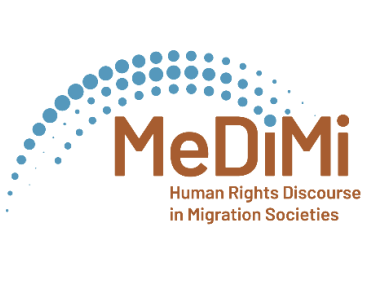 |
*New* Call for Applications: Climate, Aging, and Health in Rural America: An Interdisciplinary Mini-Conference & Workshop (Due 1/31/24)
|
The Interdisciplinary Network on Rural Population Health and Aging (INRPHA) along with the CU Population Center, hosted by University of Colorado Boulder, will hold “Climate, Aging, and Health in Rural America: An Interdisciplinary Mini-Conference & Workshop”, April 11-12, 2024. A brief application is due by January 31, 2024. Details can be found here.
(read more)
|
 |
*New* Call for abstracts: 2024 Data-Intensive Research Conference (Due 2/1/24)
NSF-NIH joint funding opportunity on Incorporating Human Behavior in Epidemiological Models (Due Feb 1-14, 2024)
|
The NSF and NIH is offering awards as part of the The Incorporating Human Behavior in Epidemiological Models (IHBEM) Program. The IHBEM Program supports research that incorporates research on social and behavioral processes in mathematical epidemiological models. The program provides support for projects that involve balanced participation from the mathematical sciences and from the social, behavioral, and economic sciences. They are interested in interdisciplinary collaborations integrating research on behavioral and/or social processes in mathematical epidemiological models.
(read more)
|
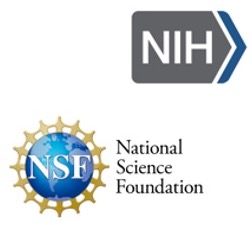 |
|

